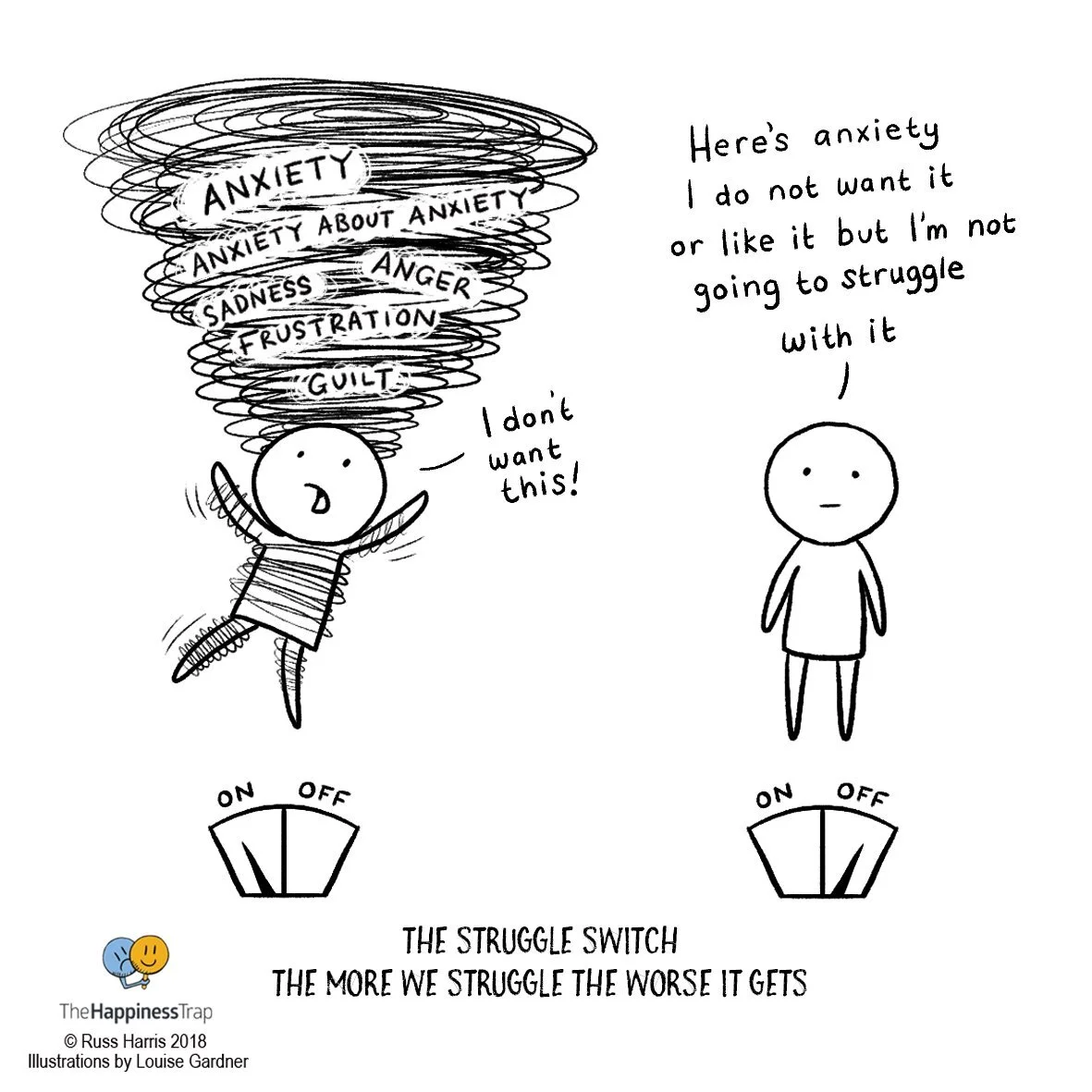Acceptance and Commitment Therapy (ACT)
Steven Hayes developed ACT as a contextual approach to behaviour therapy. ACT is mindfulness-based therapy. ACT proposes that people’s attempt to control and suppress emotions and thoughts is experiential avoidance. Primary pain, like fear and grief, is a natural and unavoidable human experience. Secondary pain comes from the attempt to fight against distress, which intensifies the pain and leads to psychopathology. Instead of running away from suffering, which eventually fails, ACT assists clients in facing primary pain through two actions.
Firstly, a value-guided action that aligns with the client’s most profound desire. ACT facilitates movement towards a more value-driven experience. Secondly, mindful action that the client is open and engaged with their activities. Troubling emotions tend to be fused with thoughts. Human language causes suffering through criticism or judgment. Defusion techniques detach clients from disturbing thoughts. They don’t have to be their thoughts, but have their thoughts.
Through Creative Hopelessness and ACT principles, clients shift the maladaptive reaction to accepting something out of personal control and commit to action that enriches life. ACT principles are i) present moment contact brings awareness to the present, allows unpleasant feelings and thoughts to arise and let them go; ii) accept the emotions through observing the emotions in sensory details; iii) through defusion, we observe our language and realise that language are nothing other than passing event; iv) self-as-context help us to experience our thought, feeling and urges are not our essence and they are changing constantly; v) values identify what type of person and what our direction is; vi) committed action to reach their meaningful goal (Greenberg, 2017).
Reference:
GREENBERG, M. J. (2017). A HYBRID ACT AND SCHEMA THERAPY PROTOCOL FOR THE TREATMENT OF DEPRESSION Wright Institute Graduate School of Psychology.
